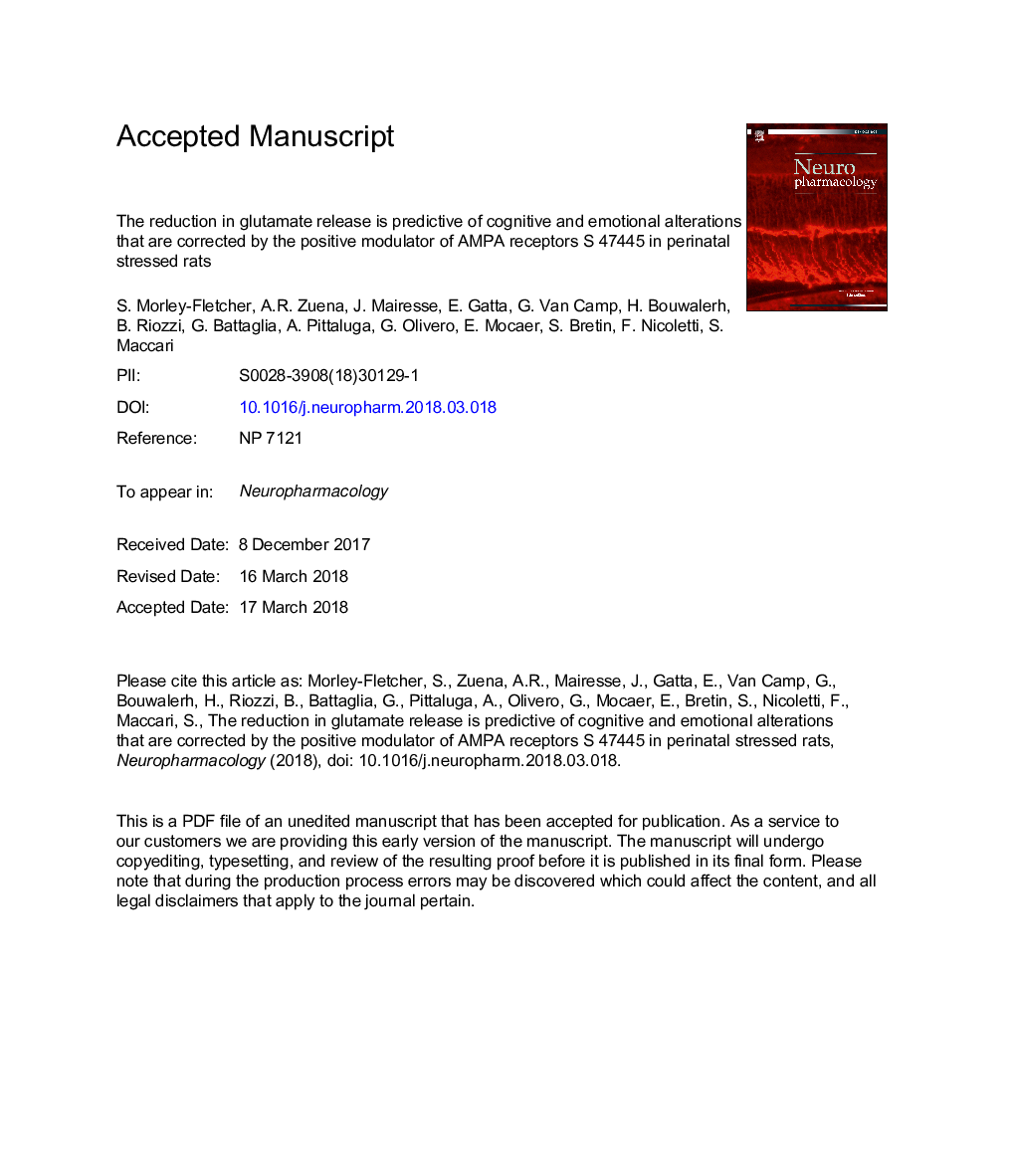| Article ID | Journal | Published Year | Pages | File Type |
|---|---|---|---|---|
| 8516719 | Neuropharmacology | 2018 | 31 Pages |
Abstract
S 47445 is a positive modulator of glutamate AMPA-type receptors, possessing neurotrophic and enhancing synaptic plasticity effects as well as pro-cognitive and anti-stress properties. Here, the drug was assessed in the perinatal stress (PRS) rat model, known to have a high predictive validity with monoaminergic antidepressants. The effects of a chronic treatment (i.p.) with S 47445 were investigated on risk-taking, motivational and cognitive behavior. S 47445 (1 and 10â¯mg/kg) increased the exploration of the elevated-plus maze and light/dark box as well as the time spent grooming in the splash test, and improved social memory in PRS rats. Also, the effects of S 47445 were examined on the synaptic neurotransmission. The reduced depolarization-evoked glutamate release induced by PRS was corrected with S 47445 (10â¯mg/kg). Remarkably, the reduction in glutamate release induced by PRS and corrected by S 47445 chronic treatment was correlated with all the behavioral changes. S 47445â¯at 10â¯mg/kg also normalized the lower levels of synaptic vesicle-associated proteins in ventral hippocampus in PRS rats. Finally, S 47445 reversed the decrease of mGlu5 receptors, GR and OXTR induced by PRS. Collectively, in an animal model of stress-related disorders, S 47445 corrected the imbalance between excitatory and inhibitory neurotransmission by regulating glutamate-evoked release that is predictive of PRS behavioral alterations, and also normalized the reduction of trafficking of synaptic vesicles induced by PRS. These results support the interest of glutamatergic-based therapeutic strategies to alleviate stress-related disorders.
Keywords
Related Topics
Life Sciences
Neuroscience
Behavioral Neuroscience
Authors
S. Morley-Fletcher, A.R. Zuena, J. Mairesse, E. Gatta, G. Van Camp, H. Bouwalerh, B. Riozzi, G. Battaglia, A. Pittaluga, G. Olivero, E. Mocaer, S. Bretin, F. Nicoletti, S. Maccari,
